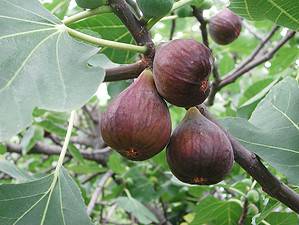Proper plant care is key to the overall happiness and lifespan of your houseplants, so you may be asking yourself: how often should I water my monstera? Popular for their large leaves and ease of care, monsteras have a lot to offer the average homeowner. However, how often do these tropical beauties need watering and what signs should you look for if you are worried about your monstera’s watering routine?
So, how often should you water your monstera? The average monstera prefers water once weekly, with multiple watering sessions likely necessary in the summertime. However, it all depends on the humidity levels and temperature inside your home, as your monstera thrives in humid and warm climates. If you notice that your monstera’s soil is dry 1-2 inches deep, it’s likely time to water.
In this article, we will go over everything you need to know about watering your monstera so that it can continue growing. We will give you some tips as to how to properly water your monstera houseplant. Plus, we will give you some insight as to the signs and symptoms of both an overwatered monstera and an underwatered monstera. Let’s get started now!
How Often Should I Water My Monstera?
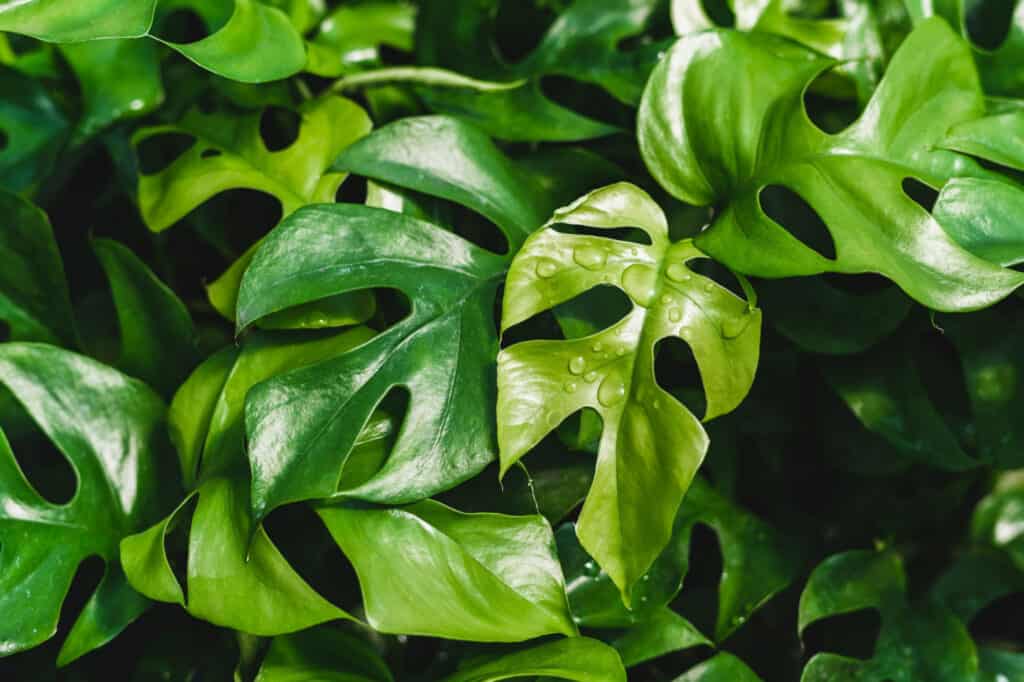
You likely won’t need to water your monstera as often in the winter, but it all depends on how warm and dry your home is!
©DJD_Media/Shutterstock.com
To answer the question of how often you should water your monstera, it all depends on the overall humidity levels and temperature in your home. For example, the warmer it is, the faster your plant will absorb water and utilize it. That’s why your monstera will need more water in the summertime, especially because this is during its active growing season.
Most houseplants experience some amount of dormancy in the winter time or as temperatures get colder, despite your home maintaining a relatively climate-controlled environment. You likely won’t need to water your monstera as often in the winter, but it all depends on how warm and dry your home is!
As a general rule of thumb, watering your monstera once per week is a good idea. You might find that this is too much or too little water, depending on the season. An easy way to tell when your monstera needs watering is to feel the soil and notice whether or not it is dry. If you find that the soil remains dry 1 to 2 inches deep, it’s definitely time to water your monstera!
How to Water a Monstera Houseplant
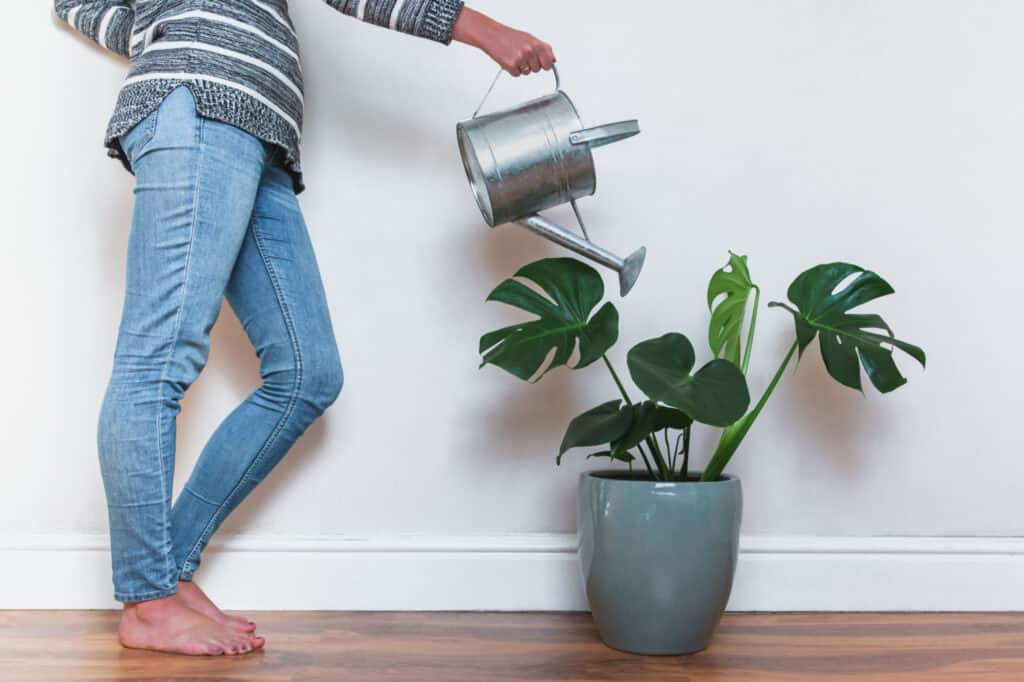
Dusting or misting the leaves of your monstera plant is a good idea.
©Francois Louw/Shutterstock.com
Watering a monstera house plant is easy if you have a bathtub or sink that your plant will fit in. You can also water your plant outside or in a location that allows for free-flowing water. Allowing your monstera to fully drain during the watering process is a must, as you don’t want your plant to remain sitting in too much water. On the opposite end, you want to make sure all of your monstera’s roots have been sufficiently watered. This means that you should water it deeply and fully, allowing for all excess water to drain from the pot.
Many experts recommend using distilled, room-temperature water. You can also use tap water if you leave it sitting out, as this allows it to adjust to room temperature as well as evaporate any potentially harmful chemicals from it. Water the soil only and take special care to avoid the leaves. Dusting or misting the leaves of your monstera plant is a good idea, but too much direct contact with water will harm its foliage.
Signs of an Overwatered Monstera
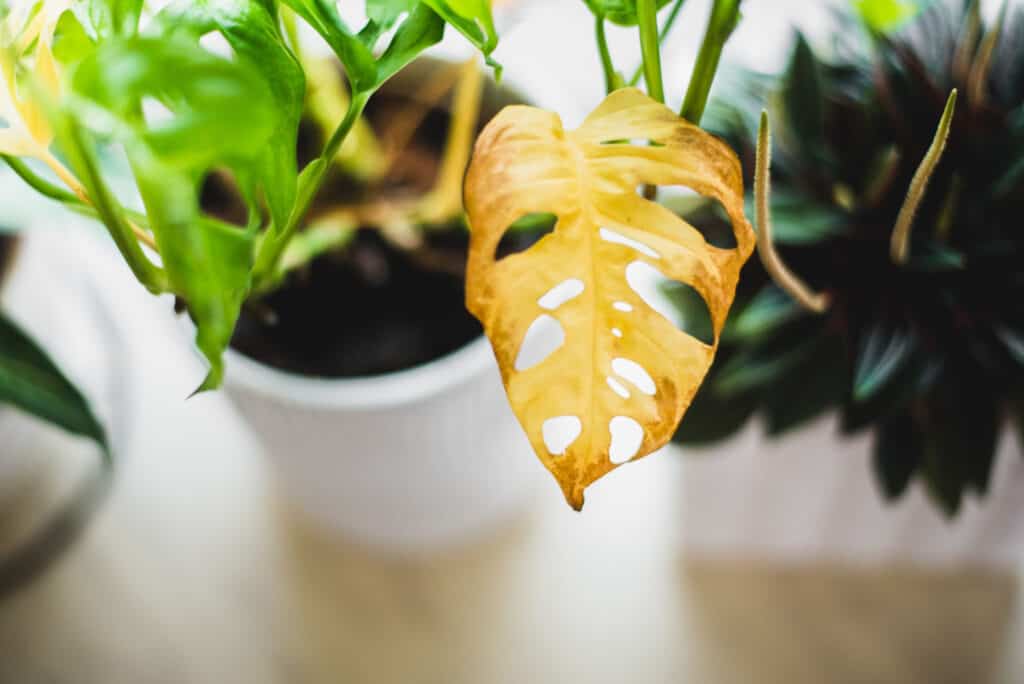
Usually, a monstera will produce yellow or brown leaves as a result of overwatering.
©Jus_Ol/Shutterstock.com
If you are wondering whether or not your watering process is too much for your monstera plant, there are plenty of signs that indicate overwatering. Some of these signs include:
- Darkened leaves (brown or black spots)
- Yellowed or sickly leaves (not dry)
- Stem droopiness or textural changes
- Molding of the soil, roots, or foliage
- Excess water in your plant tray
Signs of an Underwatered Monstera
Curious if you are experiencing the opposite problem of overwatering? Here are some signs that your monstera needs more moisture in its life:
- Dry and wrinkling leaves
- Yellow, crunchy leaves
- Drooping or sad-looking leaves
- Dry, clumping soil
- Generally droopy or slouchy stems
Other Monstera Watering Tips
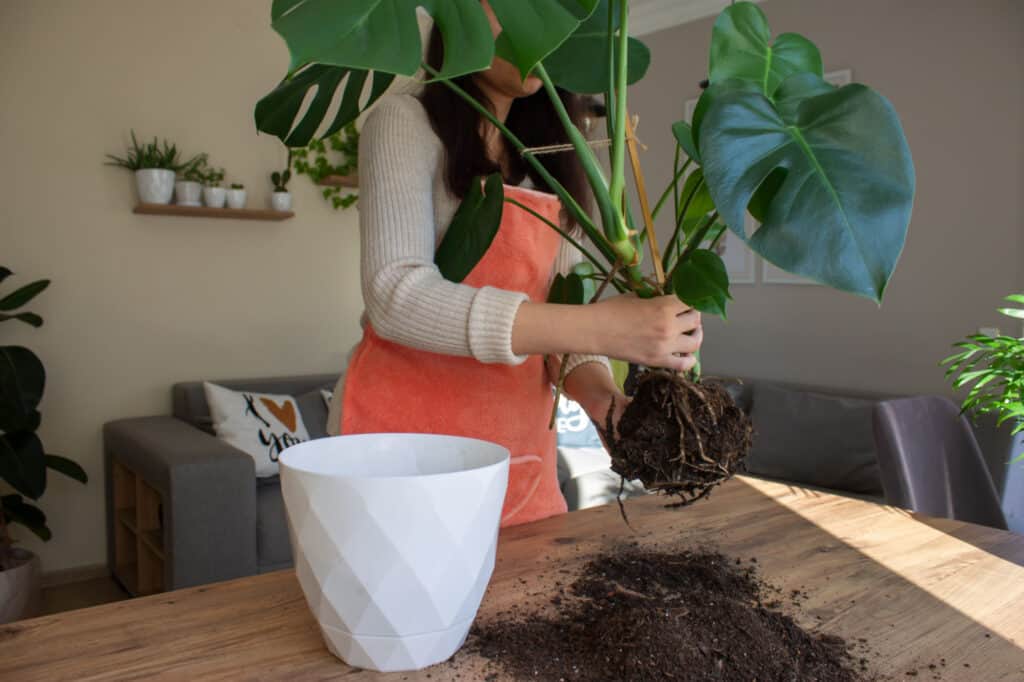
Choosing soil that is labeled as fast-draining is always a good idea so that your monstera never suffers from root rot!
©EmreCinar/Shutterstock.com
Given the fact that monsteras are native to tropical locations and thrive in high levels of humidity, keeping your monstera consistently moist but not drenched is always a good idea. However, most monstera houseplants do best when watered in a fashion that allows their soil to completely dry out in between waterings.
You may also consider repotting your monstera in a pot that supports moisture retention. Repotting any houseplant also allows you to provide necessary nutrients to them through a refreshment of their soil. Choosing soil that is labeled as fast-draining is always a good idea so that your monstera never suffers from root rot!
Up Next:
- Monstera Roots: Types and What to Do About Aerial Roots
- Growing Indoor Monsteras: How to Keep This Houseplant Happy Inside
- Monstera Plant Care: How to Take Care of Your Monstera Houseplant
The photo featured at the top of this post is © Francois Louw/Shutterstock.com
Sources
- Houseplants: Their Selection, Care and Impact on Our Lives, Available here: https://library.ndsu.edu/ir/bitstream/handle/10365/5254/h1260.pdf?sequence=1
Thank you for reading! Have some feedback for us? Contact the AZ Animals editorial team.




